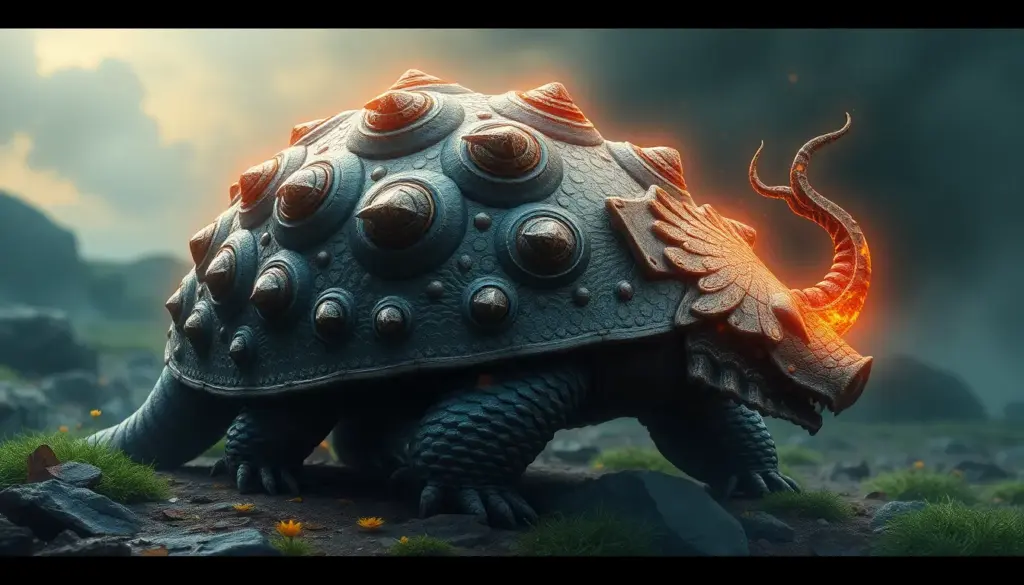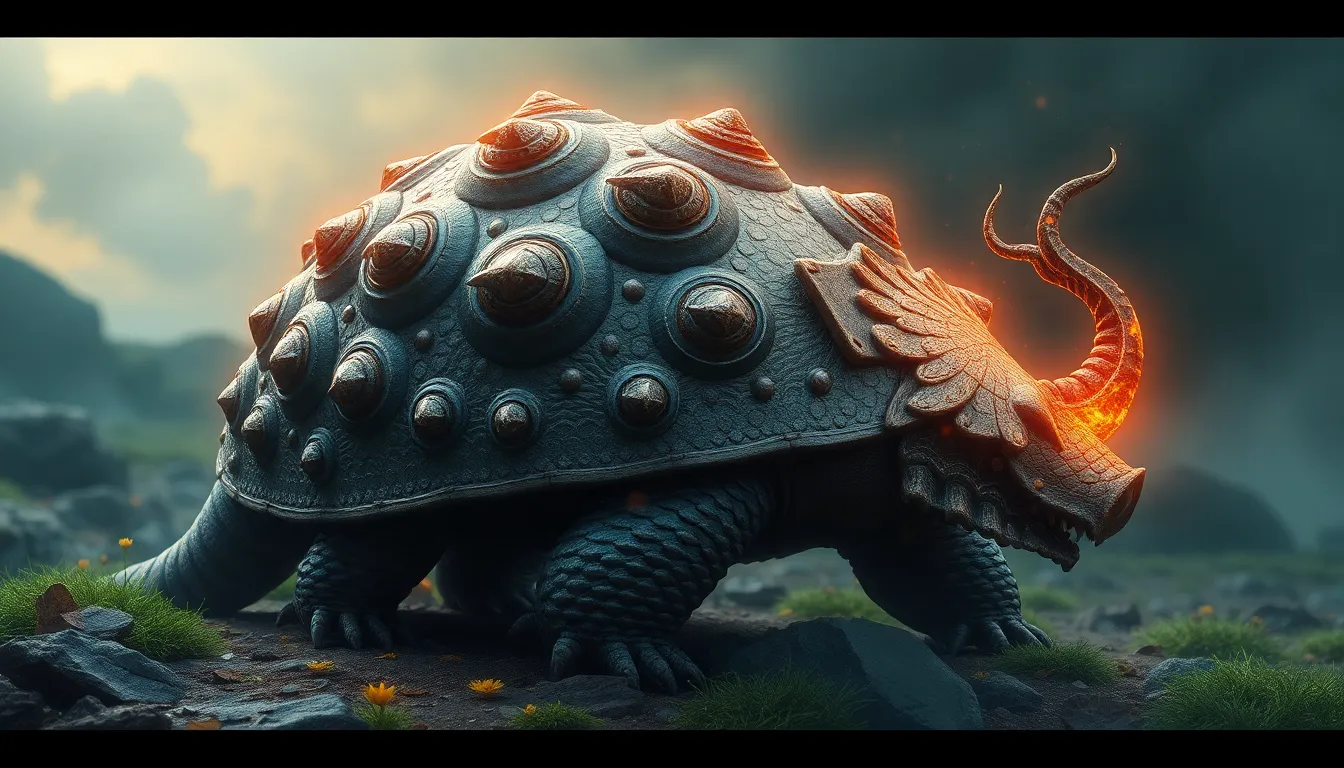
Immortality Myths: Exploring Humanity’s Enduring Quest for Eternal Life
The concept of immortality has captivated humanity for millennia. Across cultures and throughout history, the dream of escaping death has manifested in countless myths, legends, and philosophical inquiries. These immortality myths offer a fascinating glimpse into our deepest anxieties and aspirations, reflecting our enduring desire to transcend the limitations of mortal existence. This article will delve into some of the most compelling immortality myths from around the world, examining their origins, their enduring appeal, and what they reveal about the human condition. We will explore the varied forms that the pursuit of immortality takes, from physical rejuvenation to spiritual enlightenment, and consider the psychological and cultural forces that drive this persistent quest.
The Allure of Eternal Life: A Universal Theme
The yearning for immortality is arguably a universal human trait. Fear of death, the desire to preserve memories and experiences, and the longing to witness the unfolding of history all contribute to this powerful motivation. This longing has given rise to a rich tapestry of immortality myths, each offering a unique perspective on the possibility of escaping mortality. These myths are not merely fantastical stories; they often serve as allegories for deeper truths about life, death, and the human spirit. From ancient Egypt to modern science fiction, the search for immortality continues to inspire and challenge us.
Ancient Egypt: The Afterlife as Eternal Existence
Ancient Egyptian culture was deeply preoccupied with death and the afterlife. They believed that immortality could be achieved through elaborate funerary rituals, the preservation of the body through mummification, and the provision of offerings to sustain the deceased in the afterlife. The Book of the Dead, a collection of spells and prayers, guided the deceased through the perilous journey to the underworld, where they would face judgment before Osiris, the god of the dead. If deemed worthy, they would be granted eternal life in the Field of Reeds, a paradise mirroring the earthly realm. The pyramids themselves stand as testaments to this belief, monumental structures designed to ensure the pharaoh’s passage to immortality. The elaborate preparations and beliefs surrounding death in ancient Egypt underscore the profound importance they placed on achieving a form of continued existence beyond the grave.
Greek Mythology: Gods, Heroes, and the Elixir of Life
Greek mythology is replete with tales of gods and heroes who achieved immortality through various means. The Olympian gods, residing on Mount Olympus, possessed eternal youth and lived forever. Heroes like Heracles (Hercules) were sometimes granted immortality as a reward for their extraordinary deeds. Other myths centered around the search for an elixir of life or a fountain of youth, substances believed to confer eternal life upon those who consumed them. The legend of Tithonus, granted immortality but not eternal youth, serves as a cautionary tale about the potential downsides of unending life. The Greek myths explore the complexities of immortality, questioning whether it is always a blessing and highlighting the importance of youth and vitality.
The Epic of Gilgamesh: A Quest for Everlasting Fame
The Epic of Gilgamesh, one of the oldest known works of literature, tells the story of a Sumerian king’s quest for immortality. After the death of his friend Enkidu, Gilgamesh becomes obsessed with avoiding his own mortality. He embarks on a perilous journey to find Utnapishtim, the only human to have been granted immortality by the gods. Gilgamesh learns that true immortality is not about escaping death, but about leaving a lasting legacy through one’s deeds and contributions to society. The epic highlights the importance of living a meaningful life and achieving a form of symbolic immortality through fame and remembrance. [See also: Mesopotamian Mythology: Gods, Heroes, and Creation Myths]
Hinduism and Buddhism: Reincarnation and Nirvana
In Hinduism and Buddhism, the concept of immortality is intertwined with the cycle of reincarnation and the pursuit of spiritual enlightenment. Reincarnation is the belief that the soul is reborn into a new body after death, continuing the cycle of life, death, and rebirth until liberation is achieved. In Hinduism, liberation (moksha) is attained through the realization of one’s true self and union with Brahman, the ultimate reality. In Buddhism, Nirvana is the ultimate goal, a state of enlightenment and liberation from suffering and the cycle of rebirth. While not immortality in the traditional sense, these concepts offer a form of continued existence beyond the physical body, emphasizing the importance of spiritual growth and detachment from worldly desires.
Christianity: Eternal Life Through Faith
Christianity teaches that immortality is achieved through faith in Jesus Christ and his resurrection. Christians believe that those who accept Christ as their savior will be granted eternal life in heaven after death. This immortality is not a natural right but a gift from God, offered to those who believe. The concept of the soul’s survival after death and its eventual resurrection is central to Christian theology. The promise of eternal life provides comfort and hope to believers, offering a way to overcome the fear of death and find meaning in suffering.
Modern Interpretations: Science, Technology, and the Transhumanist Dream
In the modern era, the quest for immortality has taken on new forms, driven by advances in science and technology. Cryonics, the practice of preserving bodies at extremely low temperatures in the hope of future revival, represents one attempt to cheat death. Genetic engineering, nanotechnology, and artificial intelligence offer the potential to extend lifespan, enhance human capabilities, and even create artificial forms of consciousness. Transhumanism, a philosophical movement that advocates for the use of technology to overcome human limitations, envisions a future where immortality may be achievable through technological means. [See also: The Ethics of Artificial Intelligence: A Comprehensive Overview] These modern pursuits of immortality raise profound ethical and philosophical questions about the nature of life, death, and what it means to be human.
The Fountain of Youth: A Persistent Legend
The legend of the Fountain of Youth, a mythical spring said to restore youth to anyone who drinks from its waters, has persisted for centuries. Explorers like Ponce de León searched for the Fountain of Youth in the Americas, driven by the hope of achieving eternal youth and avoiding the ravages of aging. While the Fountain of Youth remains a myth, it symbolizes humanity’s enduring desire to reverse the aging process and maintain youthful vitality. The continued fascination with this legend reflects our anxieties about aging and our longing for a fountain of immortality.
The Elixir of Life: Alchemy and the Pursuit of Perfection
The concept of the Elixir of Life, a potion that grants immortality, has been a central theme in alchemy for centuries. Alchemists sought to create the Elixir through various processes, often involving the transmutation of base metals into gold. The Elixir was believed to not only confer immortality but also to heal all diseases and bring about spiritual enlightenment. While the Elixir of Life remains an elusive goal, the alchemical pursuit of it reflects humanity’s desire for perfection, both physical and spiritual. The search for the Elixir highlights the connection between immortality and the pursuit of knowledge and self-improvement.
The Psychological Significance of Immortality Myths
Immortality myths serve important psychological functions, helping us to cope with the fear of death and find meaning in our lives. These myths offer a sense of hope and comfort, suggesting that death is not the end but a transition to another state of existence. They also provide a framework for understanding our place in the universe and our relationship to the divine. By exploring these myths, we can gain insights into our own beliefs, values, and aspirations. The enduring appeal of immortality myths underscores the profound psychological need to believe in something beyond the limitations of mortal existence.
Conclusion: The Enduring Quest for Meaning
The quest for immortality, whether through religious belief, scientific advancement, or artistic creation, is a fundamental aspect of the human experience. While true physical immortality may remain an elusive goal, the myths and legends surrounding it offer valuable insights into our deepest desires and anxieties. They remind us of the importance of living a meaningful life, leaving a lasting legacy, and finding solace in the face of mortality. The enduring appeal of immortality myths lies not in their literal truth, but in their ability to inspire hope, provide comfort, and challenge us to grapple with the profound questions of life and death. The continued exploration of these myths allows us to better understand ourselves and our place in the vast tapestry of human history. Ultimately, the pursuit of immortality is a quest for meaning, a search for something that transcends the limitations of our mortal existence.

